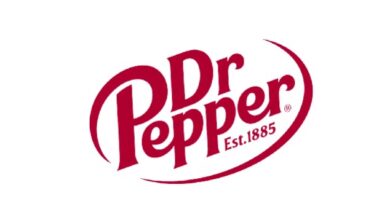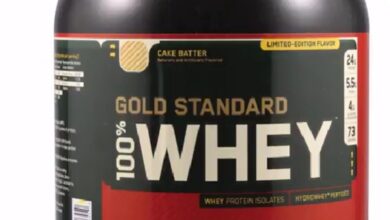Is Beer Battered Fish Halal
When it comes to dietary restrictions, the question of whether beer battered fish is halal is a common one among Muslims. This topic is important as it touches on the principles of halal and haram (forbidden) within Islamic dietary laws. This article aims to provide a detailed examination of whether beer battered fish is considered halal, considering various Islamic perspectives and the ingredients involved.
Introduction
Beer battered fish is a popular dish enjoyed for its unique, crispy texture and flavor imparted by the beer in the batter. However, for Muslims adhering to halal dietary laws, the presence of beer raises significant concerns. Alcohol, including beer, is generally considered haram in Islam, which means forbidden. This prohibition extends to any food products that contain alcohol, as consuming alcohol is explicitly forbidden by Islamic teachings. Consequently, Muslim individuals often wonder if the alcohol used in cooking, such as in beer battered fish, affects the halal status of the food.

Why Beer Battered Fish is Generally Not Halal
The main issue with beer battered fish lies in its ingredients. The batter is made with beer, which contains alcohol. According to Islamic dietary laws, any form of alcohol is considered najis (impure), and its consumption is strictly prohibited. The consensus among Islamic scholars is that the use of beer, even in cooking, renders the food haram.
Here are key points to consider:
- Contain: Beer batter contains beer, which is an alcoholic beverage and thus haram.
- Taste different: Some might argue that the alcohol cooks off, but the fact remains that it was used in the preparation, making the dish non-halal.
Islamic Scholarly Opinions
Islamic scholars largely agree that beer battered fish is not halal. For instance, according to IslamQA, the inclusion of alcohol in any form is impermissible, even if it is used in cooking and evaporates during the process. The principle is that anything containing alcohol, no matter how small the amount, is haram and should be avoided by Muslims.
Additionally, some scholars argue that even if the alcohol content evaporates during cooking, the essence and impurity of the alcohol remain, which still makes the dish haram. This perspective is rooted in the belief that any trace of alcohol, regardless of its form after cooking, violates the halal dietary laws.
Alternatives for Muslims
Muslims seeking to enjoy similar dishes without compromising their dietary restrictions have several alternatives. Many restaurants and food manufacturers offer fish dishes with alternative batters that do not use alcohol. These can include:
- Battering fish with non-alcoholic beer or sparkling water.
- Using various other liquid bases like buttermilk or club soda, which can provide a similar texture without using haram ingredients.
Where to Buy Halal Battered Fish
For those wondering where to buy halal versions of battered fish, several halal-certified restaurants and stores offer such options. Look for labels and certifications that ensure no alcohol or other haram ingredients are used in the preparation. Many grocery stores also have sections dedicated to halal foods, which may include pre-packaged halal fish products.

Frequently Asked Questions (FAQs)
What does Halal mean?
Halal is an Arabic term meaning “permissible” or “lawful.” In the context of food, it refers to items that are permissible to eat according to Islamic law. This includes not only the ingredients but also the way the food is prepared and processed.
What is Haram?
Haram is the opposite of Halal and means “unlawful” or “prohibited” in Arabic. Foods that are Haram include pork, alcohol, and any meat not slaughtered according to Islamic rites. Consuming Haram foods is strictly forbidden in Islam.
What is Halal certification?
Halal certification is a process by which a credible organization verifies that a product and its ingredients comply with Islamic dietary laws. This certification ensures that the product is free from any Haram substances and has been prepared according to Halal standards.
Why is Halal certification important?
Halal certification provides assurance to Muslim consumers that the food they are consuming meets their religious dietary requirements. It also helps businesses tap into the growing global Halal market by ensuring their products meet the necessary standards.
What are the conditions for food to be considered Halal?
For food to be considered Halal, it must not contain any Haram ingredients, must be prepared and processed in a manner that avoids contamination with Haram substances, and must be stored and transported in Halal-compliant facilities.
How do I know if a product is Halal-certified?
Halal-certified products typically carry a logo or symbol from a recognized certification body on their packaging. Always look for this certification mark when purchasing food products to ensure they meet Halal standards.
What does Mashbooh mean?
Mashbooh is an Arabic term meaning “doubtful” or “questionable.” If the Halal status of a food item is unclear, it is considered Mashbooh, and Muslims are advised to avoid it until its status can be confirmed.
How big is the global Halal market?
The global Halal market is substantial and growing. In 2019, its value was estimated at USD 4.90 trillion, and it is projected to reach USD 6.70 trillion by 2024. This growth reflects increasing demand for Halal products worldwide.
What is Halal meat?
Halal meat comes from animals that have been slaughtered according to specific Islamic rites. This process includes reciting a prayer at the time of slaughter and ensuring the animal’s blood is fully drained from its body.
Is Halal food healthier?
While Halal food is primarily about meeting religious requirements, many people believe it is healthier because it avoids harmful substances and emphasizes cleanliness and humane animal treatment. However, the health benefits can vary depending on the specific food items and how they are prepared.
Can non-Muslims eat Halal food?
Yes, non-Muslims can eat Halal food. Many choose to do so because they believe it is cleaner and healthier due to the rigorous standards involved in its preparation and processing.
How do restaurants get Halal certification?
Restaurants seeking Halal certification must apply to a recognized Halal certification body. The process involves an audit of the restaurant’s ingredients, preparation methods, and overall food handling practices to ensure compliance with Halal standards.
What is the Halal certification process?
The Halal certification process involves several steps: application, audit and inspection, certification issuance, and regular renewals to ensure ongoing compliance. The certification body reviews everything from raw material sourcing to packaging and labeling.
Are there different Halal standards worldwide?
Yes, Halal standards can vary by country due to different interpretations of Islamic dietary laws. However, efforts are being made to harmonize these standards internationally to ensure consistency.
What is Najis in the context of Halal food?
Najis refers to anything considered impure according to Islamic law. Foods that come into contact with Najis substances are not considered Halal. Examples include pork and alcohol.
What are the benefits of Halal food for non-Muslims?
Non-Muslims may choose Halal food for various reasons, including perceived health benefits, ethical considerations regarding animal welfare, and the assurance of high-quality, clean food products.
Conclusion
In conclusion, beer battered fish is generally not considered halal due to the presence of beer, an alcoholic beverage. Despite the cooking process potentially removing the alcohol content, the use of beer in the preparation process itself renders the dish haram for Muslims. However, there are many halal alternatives available that use non-alcoholic substitutes to create a similar flavor and texture. It is always best for Muslims to check for halal certifications and consult with knowledgeable Islamic authorities when in doubt.
Read also: Mitchell’s Fish Market Menu Prices





